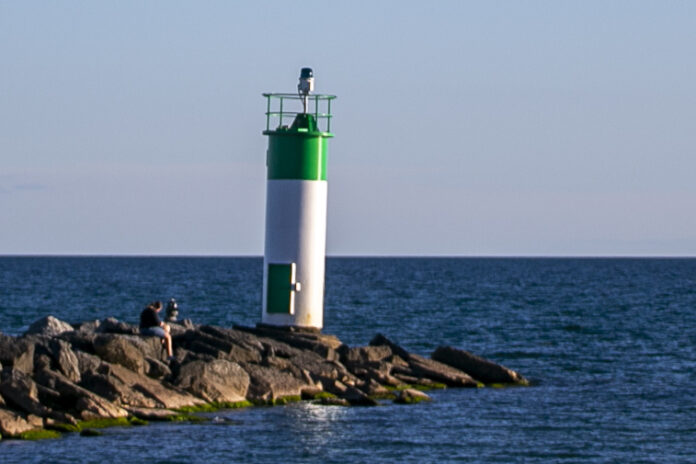(Ottawa) The federal government has pledged $420 million over 10 years to preserve and restore the waters of the Great Lakes.
Prime Minister Justin Trudeau made the announcement on Friday during the visit of US President Joe Biden, who has earmarked $1 billion over five years to improve these freshwater ecosystems in 2021.
“Our enduring collaboration in areas like trade, security and the environment demonstrates a strong commitment to making life better for people on both sides of our shared border,” Mr. Trudeau said in a statement.
The money will be spent on cleaning up a series of pollution hotspots. In Canadian waters, three sites are in Lake Superior and four in Lake Ontario, while four others are in waters shared by the two countries. With three sites already remediated, this project is part of the Canadian government’s plan to remediate 12 of the 14 worst sites in the lakes by 2030.
Funding will also go towards efforts to stop harmful algal blooms generated by agricultural runoff, as well as prevent harmful chemicals from entering these waters, which make up 20% of the world’s surface freshwater and provide drinking water to 40 million people.
The government’s goal is to reduce more than 200 tonnes of phosphorus from Canadian sources in Lake Erie within 15 years.
Environmental groups on both sides of the border welcomed the announcement, but called it a capital expenditure on what needs to be spent.
“It’s a good first step,” said Andrea Dube of Freshwater Future. She said environmentalists have called on Canada to match US funding.
“We get half of that, which is still important. But in terms of what’s at stake for Canada, it’s not enough. »
She identified algal blooms in Lake Erie and emerging toxins, such as perfluorooctane sulfonate as areas where Canada needs to pay more attention.
Mark Mattson of the group Swim Drink Fish, however, said the funding quintuples Canada’s environmental commitments to the Great Lakes.
“The announcement is really important,” he said in a statement.
The funding has also been well received south of the border.
“Commitments like these are an essential down payment to ensure the Great Lakes regain their health and can sustain a way of life for the millions who depend on them in Canada and the United States,” Joel said in a statement. Brammeier, president of the Alliance for the Great Lakes.


















